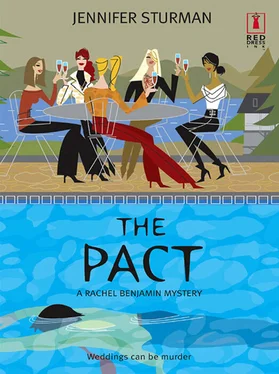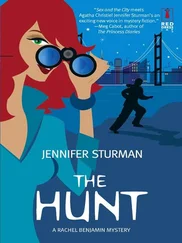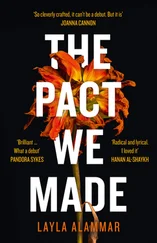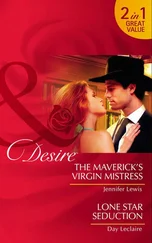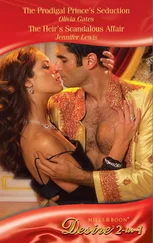While this was enough to earn Richard a place of honor on my blacklist, it was far more than a professional grudge that fueled my dislike. Quite simply, I was convinced that his interest in Emma had everything to do with gold digging and social climbing and nothing to do with love and respect.
Emma was one of the most compassionate, well-intentioned people I knew. However, growing up in the shadow of two exceedingly good-looking, glamorous parents hadn’t done much for her self-esteem. She’d had a few boyfriends, but even she had seemed to recognize that they tended to be more interested in the vast wealth she’d inherited from her mother’s blue-blooded family, the fame of her artist father or even in her nascent reputation as an artist in her own right than in her as a person. Overall, she was woefully inexperienced with men and doubtful that anyone would ever love her for the right reasons, no matter how frequently I listed her many virtues in an effort to bolster her confidence.
Yet all her insecurities seemed to melt away under the sheer force of Richard’s initial onslaught. In the early days of their relationship he romanced her aggressively. He deluged her with flowers and chocolates, intimate dinners, weekends in the country and extravagant gifts, and Emma was overwhelmed. For several months she was glowingly happy, and I was eager to believe that he was on the up and up, at least as far as Emma was concerned. I even tried to be nice to him when I saw him, which wasn’t easy.
Even before they were engaged, however, he rapidly downshifted into taking her for granted. He’d cancel arrangements with her at the last minute or arrive late without an apology, let alone an excuse. There were no more flowers or chocolates, although he did seem to take a fastidious interest in the gifts they registered for at Tiffany’s. Instead of intimate dinners, or weekends in the country, Richard turned his attention to the types of events covered by the society pages, displaying Emma on his arm like a trophy. It was around then that I started to avoid making plans to see them together and would instead arrange to have lunch or dinner with Emma alone. But when I did see Emma, she seemed despondent, and the radiant excitement she’d once shown when she spoke of him had dulled.
I’d tentatively tried to broach the subject with her a few months after they announced their engagement. We’d met for a late dinner at a quiet restaurant near her loft, and after I’d had a glass of wine I worked up the courage to ask her if everything was all right between Richard and her. Up until that point our conversation had skipped easily from a movie that we’d both seen to a discussion of my work and then of her work. Emma had her first gallery show when she was only twenty-one, and although there were more than a few disgruntled followers of the New York art scene who complained that Emma’s father had smoothed her way, few could dispute her artistic talent. Whereas her father’s work was still entirely abstract, Emma focused on landscapes and portraits that inspired comparisons to Edward Hopper and John Singer Sargent. The first show as well as the ones that followed in the ensuing years met with great critical acclaim. Now, however, she seemed worried. “I think I have the artist’s equivalent of writer’s block,” she confided. “I can’t get anything done.”
It was then that I asked her about Richard, thinking that the question would seem like a natural part of the discussion. I had hoped that she would open up a bit and allow me the opportunity to voice my concerns. Instead, it seemed as if an invisible wall suddenly went up around her. “Oh, Richard’s just fine,” she answered quickly, and then she abruptly changed the subject.
The rest of our conversation that night was stilted, and I went home wondering if I should have forced the issue but hesitant lest I should alienate her. Her response had felt like a warning to me, a clear sign that she did not want to talk about her relationship with Richard. And, except for the occasional glancing reference, we didn’t talk about him in the months that followed. It was awkward maintaining a friendship when there was such a large and obvious topic that we danced around without discussing.
This wasn’t the first time that I’d been upset by how Emma let herself be treated like a doormat by a boyfriend. But this time was serious; it was marriage.
I hoped she knew what she was doing. I sure didn’t.
It was easy to lose one’s way on the twisting roads that led to the Furlongs’ house. Streetlights and signposts were kept to a bare minimum, and the trees effectively blocked out the sky. I suspected the families who had houses in the area preferred it that way—the last thing they wanted was to point out their tranquil country refuge to strangers.
Yuppies from Manhattan and Boston had already descended upon old-money enclaves in the Hamptons and Cape Cod. From Water Mill to Osterville, and even on Martha’s Vineyard and Nantucket, they were busily buying up modest summer cottages for exorbitant prices, tearing them down and replacing them with sprawling mansions. Their slick German luxury sedans and Land Rovers clogged the country roads and vied for parking spaces with the battered Buicks and Lincolns favored by WASP holdouts.
By comparison, the Furlongs’ corner of the Adirondacks had remained pristine. The general store in town continued to do a healthy trade in Wonder bread and domestic beer. If you were looking for goat cheese, Chilean sea bass, or imported mineral water, you were definitely in the wrong place.
It was so dark that Jane nearly missed the turn for the Furlongs’ house. The stone pillars on either side of the gate were almost completely hidden by bramble, and ivy draped over a faded sign that read Quail Lake. Luisa dug the slip of paper on which she’d written the gate code out of her purse, and Jane rolled down her window and punched the numbers into the keypad. The wrought iron panels slid soundlessly apart and then closed shut behind us.
The house itself was nearly a mile from the road, and we were quiet as Jane carefully steered along the narrow drive. I listened to our wheels crunching on the loose gravel. The thick woods on either side contributed to a sense of isolation that had always felt peaceful when I’d visited before. The crisp northern air with its scent of pine brought to mind unbidden memories of long-ago evenings as a child at summer camp, an unfortunate experiment initiated by my parents in the vain hope of instilling in me a love of nature.
We rounded the last turn and the house came into view. From this angle it looked deceptively modest. Every time I came here I wondered how Mrs. Furlong managed to maintain the wooden shingles in exactly the same state of shabbiness, not quite dilapidated but dangerously close. In this case, however, looks were completely deceiving. There were five bedrooms in the house, along with a number of rooms for sitting and lounging, all luxuriously appointed in a manner that was so discreetly expensive that only the most finely trained eyes could appreciate the value of the well-worn rugs, the graceful lines of the Early American antique furnishings, and the sheer scale of investment required to maintain such a lavish household in this simple but elegant comfort.
Light spilled from an upstairs window onto the wide circle before the house. Jane parked the truck next to the line of cars that had accumulated in the clearing along the edge of the drive. I recognized Mrs. Furlong’s aged Mercedes convertible, Mr. Furlong’s even older Volvo, Richard’s spanking new BMW, and Matthew’s battered Saab. Only family members and family equivalents were staying at the house tonight.
The front door was unlatched—the gate at the drive and the high fence around the property made locks unnecessary—and we passed through it single file just in time to catch Lily Furlong ascending the stairs to the second floor. Hearing us come in, she paused and turned to greet us, stifling a ladylike yawn in a delicate fist.
Читать дальше
